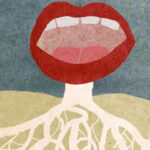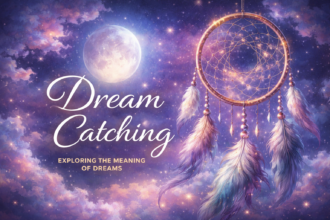Sleep is sacred in many Asian cultures. Beyond resting the body, it’s a time when ancestors, spirits, and unseen energies are believed to roam; when dreams carry messages; and when the direction your head faces at night matters as much as what we dream. Across South Asia, East Asia, Southeast Asia, and culturally Buddhist or Hindu regions, numerous superstitions link sleeping orientations and bad dreams together. Whether you believe them literally or see them as metaphor, these beliefs offer rich insight into how people interpret discomfort, fear, or malaise that shows up in the night.
In this article, we’ll explore major beliefs about sleeping directions (which way your head should face), common superstitions tied to bad dreams, and how these ideas influence what people do today. We’ll also consider whether there’s psychological value behind them—even if they’re not “scientific”.
Why Direction of Sleep Matters in Asian Traditions
In many Asian belief systems, direction is never arbitrary. Cardinal directions (north, south, east, west) are charged with symbolic, spiritual, and even mythical meaning. They relate to magnetic currents, to geomancy (feng shui, vastu, etc.), to the cosmos, and to ancestral practices.
For example:
- Vastu Shastra (India): This ancient science of architecture and dwellings includes strong guidelines on how a person should sleep. It holds that sleeping with the head to the north can lead to restless sleep, bad dreams, even health problems. The best directions are often east or south, depending on personal specifics (birth details, layout of home, etc.).
- Feng Shui (China): Similar ideas persist. Bed placement, direction your head faces, how the room aligns with the house’s orientation and doors/windows—all are believed to affect chi (energy), which in turn affects sleep, dreams, and well-being.
- Japanese folklore: One very well-known belief is that sleeping with your head pointing north is taboo because it’s the direction in which the dead are laid to rest (in old custom). Thus, northward‐sleeping might invite bad luck, restless sleep, or nightmares.
Because direction is connected to energy flow, ancestral respect (e.g., how bodies are laid out), and cosmological tradition, it becomes part of superstitions around sleep and dreams.
Common Superstitions: Sleeping Head North, West, East, South & Their Effects
Here are some of the recurring beliefs and superstitions across Asia regarding sleeping direction and how they tie to bad dreams or negative sleep experiences.
Sleeping with Head Facing North
Very widespread belief (India, Japan, parts of China, etc.) that head pointing north causes nightmares or restless sleep. Reasons include magnetic disturbances, spiritual disquiet, or the idea that souls depart via the head, so pointing north is disrespectful or spiritually disruptive.
In Vastu, head toward north is considered worst, often connected with disturbed sleep, mental unease, frequent bad dreams.
Sleeping with Head Facing West
In Thailand, many believe that sleeping facing west is “sleeping towards the dead”—in funeral settings corpses are placed facing west. So beds pointed that direction are thought to attract bad spirits or bad luck in dreams.
In Vastu, west is less awful than north, but still often discouraged for those with frequent nightmares or sleep issues.
Favourable Directions: East and South
Many superstitions agree that the east is beneficial, associated with sunrise, beginnings, light, renewal. Sleeping with head facing east is believed to bring good dreams, mental clarity, vibrant energy.
South is also frequently recommended in Vastu for sound sleep, better health, longevity. For some, southward sleep is believed to align the body with Earth’s magnetic field in ways that avoid negative effects.
Remedies & Practices to Avoid Bad Dreams
Tied to these sleeping direction beliefs are a range of folk practices meant to ward off nightmares, improve sleep, or realign energies:
- Bed repositioning: Changing which way your head faces. If someone often dreams badly or sleeps poorly, switching direction (e.g., from north to south) is a commonly recommended fix.
- Room layout adjustments (Feng Shui / Vastu): Aligning furniture, clearing clutter, avoiding head directly under beams, avoiding mirrors facing bed, etc., all to reduce sleep disturbance.
- Environment & colours: Using bedroom colours, curtain styles, objects that bring calm, avoiding shapes or colours believed to provoke negative energies.
- Spiritual or ritual actions: Burning incense, keeping salt or copper near bed, prayers or mantras before sleep, burying objects under pillow, local folk charms.
Cultural Examples
Here are more specific examples from different Asian regions so you see how beliefs differ, overlap, and are still lived:
- India (Vastu Shastra): According to many Vastu practitioners, if you sleep with your head toward north, you’re aligning your body’s magnetic field against Earth’s, which is believed to cause disturbance. East or south is preferred. Many home articles talk about the effects: nightmares, restlessness, fatigued mornings when direction is “wrong.”
- Japan: The belief that sleeping with your head to north is unlucky is deeply embedded. An expression of reverence to the dead (Buddha’s resting posture), plus social tradition makes it more than superstition. Even today many Japanese avoid that direction in homes.
- Thailand & Southeast Asia: As mentioned, in Thai culture west-facing beds are often associated with misfortune. In hotels, homes, locals watch and avoid these directions if possible. Some elder members still insist sleeping direction must correspond to certain geomantic or spiritual rules.
Psychological & Modern Interpretations: What Might Be “Real”
While these beliefs are superstitions (not scientifically proven), some elements may have plausible explanations or psychological value:
- Magnetic fields & discomfort theory: Some belief is that sleeping with head pointed north aligns with Earth’s magnetic field in a way that disrupts sleep, causes restlessness or weird dreams. Though evidence is weak, discomfort from environmental cues (drafts, colder walls, room layout) may be interpreted as “bad sleep” or bad dreams.
- Expectation, suggestion, and confirmation bias: If someone believes sleeping north causes bad dreams, they might notice bad dreams more when they sleep that way. Then they change the direction, believe sleep improves―so it’s a self-fulfilling prophecy of sorts.
- Cultural priming: From childhood people are told which direction is right/wrong or “safe/dangerous.” That repeated belief shapes how sensitive they are to sleep, dreams, and anxiety around them.
- Environmental factors: Rooms might feel colder on one side, or light from windows in certain directions disturb early morning, etc. These physical stresses influence dream recall or cause sleep disturbances, which are then interpreted through the lens of superstition.
So, Do These Beliefs Still Matter Today?
Yes—very much so. In many Asian households, even in modern cities, these beliefs are passed down. People still move beds, hang talismans, consult elders, or follow Vastu/Feng Shui advice when buying a home or arranging a bedroom. Even if someone is not deeply religious, these habits influence mental comfort and peace of mind (which affect sleep).
Many people also combine these old beliefs with scientific sleep hygiene—avoiding electronics before bed, keeping room cool, etc.—and say that aligning sleep direction according to tradition helps them sleep more peacefully, have fewer nightmares, or at least feel more comfortable or reassured.
Practical Tips for Readers
If you want to experiment with these beliefs—whether for superstition, comfort, or curiosity—here are some tangible, gentle ways to try shifting your sleep direction and environment to reduce bad dreams:
- Try rotating your bed 180°, so your head points in a different cardinal direction for a week. Note any changes in sleep quality or dream vividness. Combine with sleep hygiene: dark curtains, quiet environment, calming pre-sleep routine.
- If possible, align your bed so your head is toward East or South (according to Vastu / local tradition / Feng Shui). Use compass if needed.
- Remove sharp angles, mirrors directly facing bed, overhead beams above head—these are common “bad energy” beliefs.
- Use ritual or symbolic items: incense, salt under pillow, talismans, prayers/mantras, whichever tradition you connect with.
Criticisms & Caveats: When Superstitions Can Backfire
It’s worth noting some downsides or risks:
- If believed rigidly, these superstitions might cause anxiety: someone who can’t have their bed facing South (due to room layout) may stress over nightmares simply because of direction.
- There’s limited scientific research proving strong causal effects; many reports are subjective.
- These beliefs vary widely by culture—what’s “bad” in one place might be neutral or even “good” in another.
Final Thoughts
The idea that “direction matters” when you sleep, and that certain orientations can bring bad dreams, is a powerful thread tying together many Asian cultures. From Japan’s caution against sleeping north, to India’s Vastu rules, to Feng Shui’s directional balancing, these superstitions persist because they speak to human experience: fear, comfort, respect for ancestors, and the unseen.
Even if you don’t fully believe them, trying changes in sleep direction or environment can have psychological effects—reducing anxiety, improving belief in restfulness, and helping you feel in control. And sometimes, feeling safer or more aligned is exactly what the mind needs to quiet fears at night.
If you have recurring nightmares or “bad dreams,” you might find comfort trying one or more traditional direction-based suggestions—whatever your cultural background—and observing for change. Whether or not the superstition is “true” in a strict sense, the ritual and intention might help you sleep more peacefully.
Disclaimer: The content here is meant for information and cultural exploration only. These superstitions are not scientific facts. If you have ongoing sleep problems, nightmares, or health concerns, speaking with a medical professional or sleep specialist is recommended.





